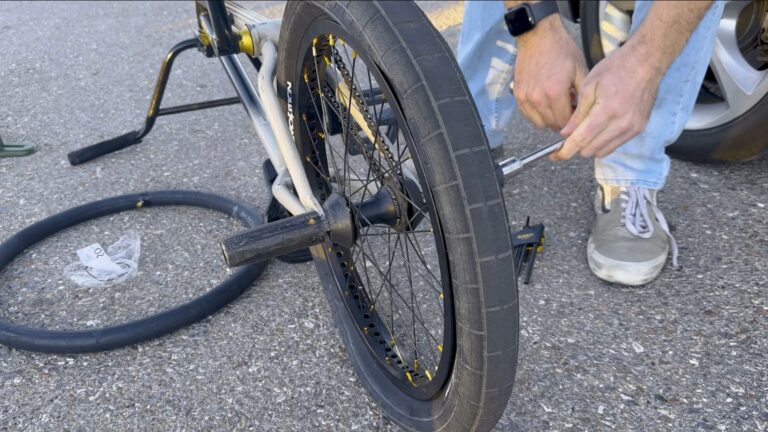Bike tire popping is when the inner tube of a bike tire becomes deflated. This is due to the inner tube being punctured or cut. Most of the time, this happens when biking through a pothole, rock, or broken glass.
The inner tube then starts to slowly leak air, which deflates the tire even more. If this continues for a long time, the tire can become completely deflated.
This is very dangerous because it will cause the rider to lose control of the bike and possibly fall. Cycling on a flat tire is dangerous because the tube can burst, causing the rider to lose control of the bike.
When popping occurs, it is necessary to repair the bike tire immediately. This can be done by using a patch or plug. One should not ride on a tire with a hole in it, as this can cause a serious accident.
Why Does My Bike Tire Keep Popping
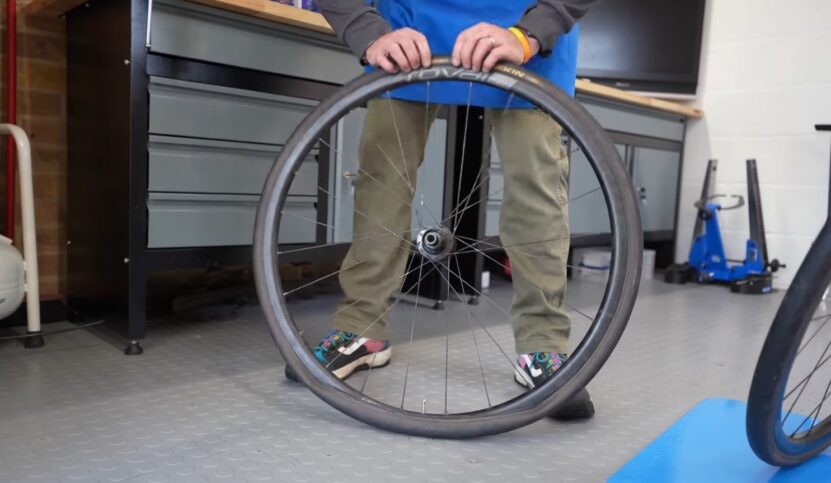
There can be several reasons due to which a bike tire popped, some of them are discussed below. After reading this whole article you will be able to find out the reason why does my tire bike tire keeps popping? and what should be the solution to this problem?
Tire Pressure
Before even getting on your bike make sure you check the tire pressure of your bicycle tires. The recommended tire pressure for most road bikes is around 80-120 PSI (pounds per square inch). You can find this info in the owner’s manual or on the manufacturer’s website if you don’t have it available.
If your tires are low inflate them with either a hand pump, CO2 cartridge, or air compressor. Keep in mind that airing up your tires with a hand pump will take time and arm strength.
A quick way to inflate your tires is by using a CO2 cartridge inflator. This little device screws in between the tire and the inner tube. When you press down on the lever the cartridge shoots compressed gas into your tire which quickly fills it up.
An important thing to keep in mind when filling up your tire is that each time you add an additional 100 PSI, this adds 1 pound of weight to your bike (if measured at the wheel).
Every extra pound added to the wheel makes it harder for your bicycle to move forward so be mindful of how much pressure you put in your tires. If you like biking fast and far consider getting high-performance road bike tires. They are much lighter than other types of tires and will give you an advantage while biking.
If you regularly check your tire pressure before every ride, the chances of getting a flat should be greatly reduced if not eliminated altogether.
Tire Wear
Another cause of tire problems is rapid wear to the treads of your tires. If the grooves in between your tire’s tread get too low they can’t grip onto the ground which will cause flats (and accidents). The recommended distance between each groove is 1/32nd of an inch but this number varies depending on tire wear and manufacturer specifications. Be sure to regularly inspect your tread for any abnormal wear or unevenness because this could lead to a dangerous situation while riding.
Cheap Tires
Bicycle tires cost next to nothing so there is no reason why you should be using the same inflated tire for more than a year or two. If your bicycle tire becomes flat and won’t air up, check if it has any cuts in it. This can be caused by wearing out or from hitting rocks or other objects on the road/path that puncture your tire with an object as small as a nail.
It’s also important to pay attention to where you’re riding your bike, especially off the road biking. It’s fun but not much is going to save you if you suddenly hit a large rock at high speeds and pop a hole in your cheap, worn-out bicycle tire.
So check your tire pressure regularly for safety and to save yourself the frustration of having to fix a flat every couple of miles. But most importantly, spend the extra money on high-quality tires so you can get more life out of them for less cost in the long run.
How do I stop bike tires from popping
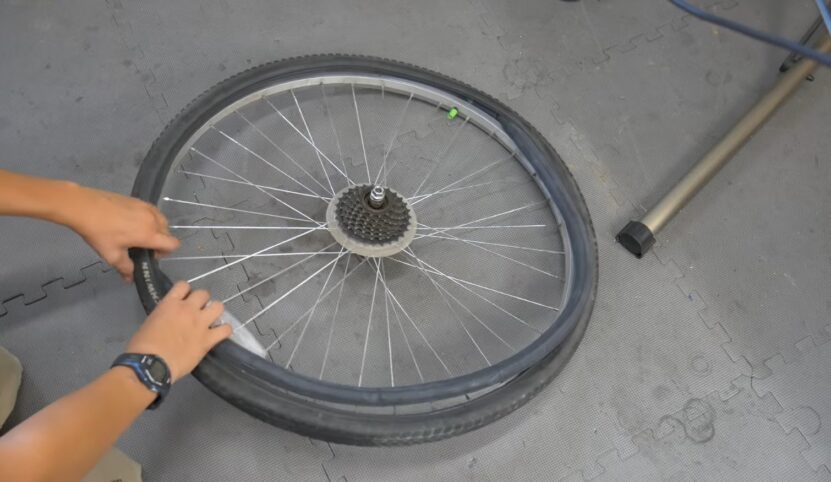
If you have ever ridden a fixed-gear bicycle, chances are that at some point you will experience sudden tire blow-out on your rear wheel. This can be very dangerous if not done carefully.
There are two ways to prevent this from happening:
1.) Pumping the tire more often (probably best for commuters)
2.) Replacing your inner tube (best for racers)
If you aren’t willing to do either of these things or don’t want to spend money on inner tubes, then learn how to fix flat tires. I recommend becoming proficient in fixing flat tires while riding before you actually pop one.
Although it is hard NOT to stop when you get a flat… try and get used to changing flats quickly so that they won’t catch you off guard.
Why Does My Front Bike Tire Keeps Going Flat
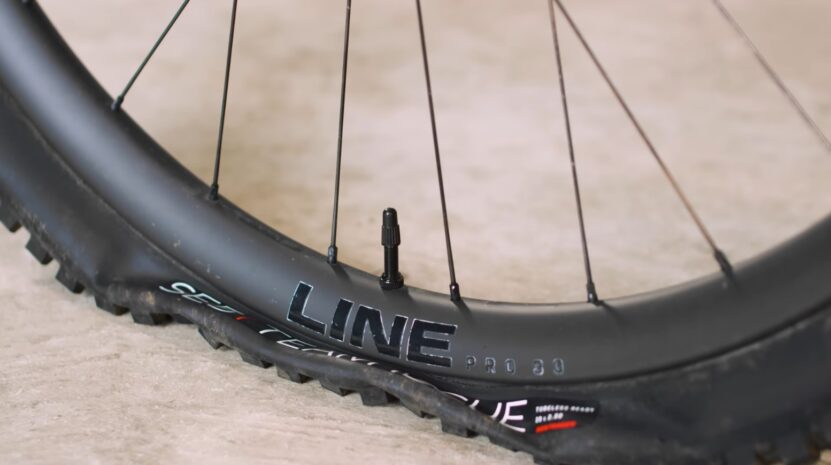
A few weeks ago I bought a brand new, fancy road bike. Now it seems like every day I’m having to stop by the side of the road to fix yet another flat tire. And when I look carefully at the tires, they seem smooth and round. So why keep getting flats?
There are two reasons you’re getting a lot of flats:
First, because your tires are under-inflated.
Second, because there is something sharp embedded in one or both of your tires that are making a tiny hole every time you roll down the road.
In an article from About.com, Sheldon Brown explains how correctly inflating your tires will significantly reduce your chances of getting a flat tire.
“Most bike tires lose pressure every day, just sitting there. The rate at which they leak depends on the air pressure inside them and the size of the hole in the tire casing through which the air is leaking.
Since it is impossible to eliminate all holes, tire makers attempt to design their tires so that when properly inflated they will not leak enough air to cause a significant loss of riding performance during a normal period of daily use.”
According to Brown, even though under-inflated tires are more likely to get punctured, over-inflation can also make your ride uncomfortable because you’ll be using up energy flexing your wheels against road resistance (which is caused by friction between your bicycle’s tires and the road).
But if you think that over-inflating your tires will help prevent flat tires, you’re wrong. If anything, it’s more likely to cause one because of the added stress placed on the tire casing.
“Over-inflation can contribute to tire failures by causing additional flexing of the sidewalls when cornering or accelerating/braking hard, and extra strain on joints between beads and sidewalls.”
So how do you keep getting flats despite maintaining proper air pressure? Unfortunately, it does not just puncture that is responsible for most frequent flats. There is another reason why bike riders get a lot of flats: sharp objects embedded in their bike tire treads.
Why did my inner tube explode
1. Inner tubes are made of rubber, which is a natural material that can be susceptible to the environment
2. Heat and cold exposure can cause inner tubes to crack or burst
3. Overinflation of an inner tube will also lead to burst seams
4. If you don’t store your inner tube in a cool, dry place it may develop mold and bacteria growth over time
5. Take care when inflating your inner tube – too much air pressure will make it more likely for the seams to break or tear open
6. Punctures from sharp objects like rocks and sticks can also cause an explosion if they go through the outer layer of rubber into the bladder inside.
Why Would A Tire Blown Out
1. Tires are made of rubber and can deteriorate over time
2. A tire blowout is usually caused by a nail puncturing the tire, which happens more often in rural areas than urban ones
3. Driving on a flat or under-inflated tire will cause it to wear down faster, so check your tires regularly
4. Check for any leaking fluid around the rim of the wheel – if you see any, get your car checked out immediately
5. If you’re driving at high speeds when you have a blowout, be sure to take evasive action as soon as possible to avoid crashing into something else
6. Always carry spare tires with you in case one blows out unexpectedly
Why Do I Keep Getting Pinch Flats?
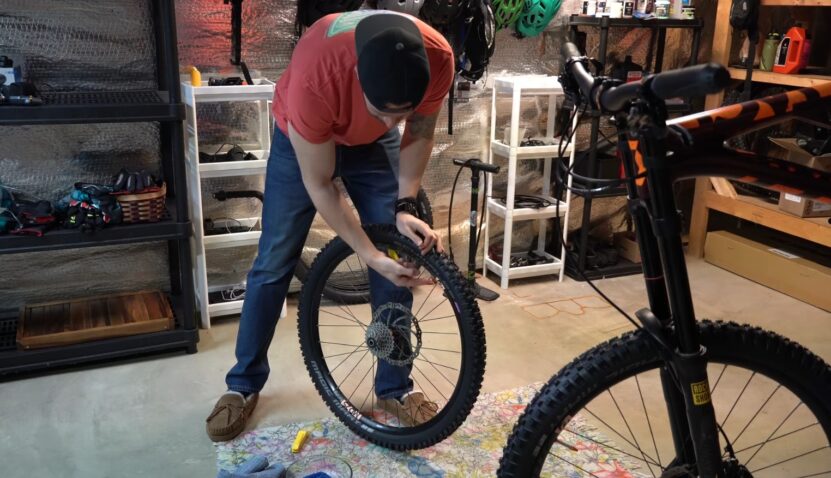
1. Check the air pressure in your tires and make sure they are inflated to the correct amount
2. Make sure you have enough tire tread for traction on pavement
3. Take a look at your bike’s alignment – if it is off, this could be causing pinch flats
4. Check that there aren’t any objects stuck between your tire and wheel rim
5. Inspect your rims for damage or cracks that might cause problems with the tube inside of them
6. Replace worn out tubes and tires as needed to avoid future flat tires
Why Does BMX Tire Keep Popping?
1. Make sure your tires are inflated to the right pressure
2. Check that there is no air leaking from any of the tubes or valve stems
3. Check that you have enough air in your tire for it to be ridden without popping
4. Clean out dirt and debris from inside your tire, including around the rim where it meets the tube
5. Replace worn-out tires with new ones – this will help prevent them from popping because they’ll be more pliable than old tires
6. If you’re riding on rough terrain or over potholes, try putting less weight on one side so that it won’t pop as often when hitting bumps
How Much Air Should I Put In My Road Bike Tires?
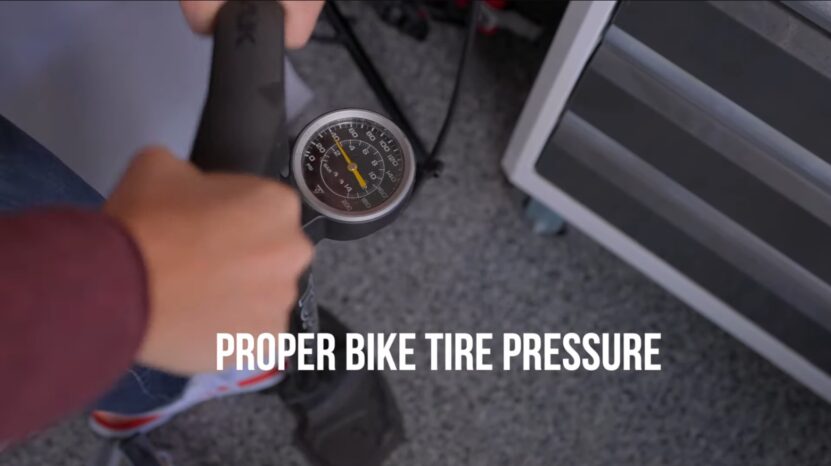
1. Road bike tires are inflated to different pressures depending on the rider’s weight and type of terrain
2. The most common pressure is 120 psi, but it can be as low as 80 or as high as 160
3. You should inflate your road bike tires so that they feel supple and not squishy
4. Avoid over-inflating your tires because this will cause them to wear out faster
5. Over-inflating also causes a lot of rolling resistance which makes pedaling more difficult
6. Under-inflated tires will make you feel like you’re riding in sand and can lead to punctures

